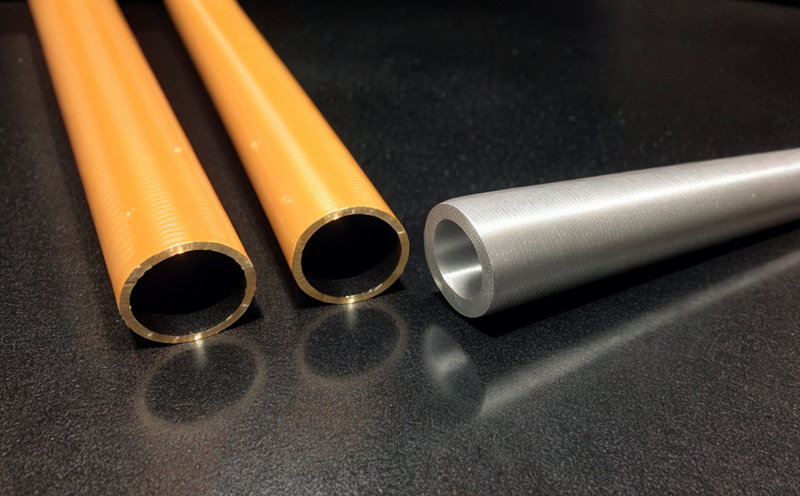ASTM D2343 Tensile Testing of Composite Fibers
The ASTM D2343 standard specifies the procedure for tensile testing unidirectional composite fibers. This method is essential in understanding the mechanical properties of composite materials, which are widely used across aerospace and aviation sectors due to their high strength-to-weight ratio.
ASTM D2343 applies specifically to unidirectional composite fibers with a thickness not exceeding 1 mm. The test aims at determining the tensile strength and modulus of these fibers under defined conditions. This procedure is crucial for quality assurance, research and development, as well as compliance with international standards.
The testing setup involves using specialized grips that hold the specimen in place while applying force until failure occurs. Specimen preparation plays a critical role; it requires cutting samples from composite materials according to specified dimensions and orientation angles. The integrity of specimens is paramount; any imperfections could skew results, making accurate testing challenging.
Instrumentation used typically includes an electronic tensile tester capable of precise load measurement up to 50 kN or higher depending on the expected strength of the fibers being tested. Data acquisition systems capture stress-strain relationships during loading cycles, providing detailed insights into material behavior under tension.
Data interpretation involves analyzing peak loads and strains recorded from each test run. Results are presented in terms of tensile strength (MPa) and elastic modulus (GPa), which help engineers make informed decisions regarding material selection or process optimization.
ASTM D2343 is particularly relevant for aerospace & aviation applications where lightweight, durable structures are required. By ensuring consistent performance through rigorous testing before production, manufacturers can enhance safety standards while reducing overall weight – a key factor in aircraft design.
In summary, ASTM D2343 provides critical data needed to evaluate composite fiber quality and reliability. Its implementation ensures that materials meet stringent requirements set forth by industry leaders like NASA or European Aviation Safety Agency (EASA).
Why It Matters
The results from ASTM D2343 testing are significant for several reasons:
Tensile properties directly influence structural integrity and fatigue life of aircraft components.
Ensures compliance with aerospace regulations ensuring safety standards are met.
Aids in optimizing manufacturing processes leading to more efficient production lines.
Supports research efforts aimed at developing next-generation materials with enhanced performance characteristics.
In essence, accurate tensile testing helps prevent potential failures that could result in costly downtime or even accidents. It supports continuous improvement initiatives within organizations working towards innovation and efficiency.
Eurolab Advantages
At Eurolab, we offer comprehensive services tailored to meet your unique needs when it comes to ASTM D2343 tensile testing of composite fibers:
Our state-of-the-art facilities house some of the most precise equipment available, ensuring accurate and reliable results.
We employ highly trained professionals who possess extensive experience in conducting this type of testing.
We adhere strictly to international standards such as ASTM D2343, guaranteeing consistent quality across all tests performed here.
Our services are available on a flexible basis; whether you need one-time testing or ongoing support, we cater to your schedule.
Partner with us for unparalleled expertise and precision in ASTM D2343 tensile testing of composite fibers. Your satisfaction is our top priority.
Frequently Asked Questions
By ensuring robust materials used in aerospace applications, we contribute to longer-lasting aircraft, reducing the need for frequent maintenance and replacements. This ultimately leads to lower fuel consumption and emissions.





